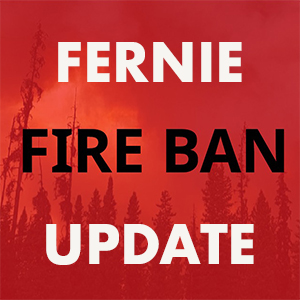
Landslides. Floods. Wildfires. They come with a vengeance, sweeping away or burning up communities. When they’re happening, they seem inevitable.
But what if these events weren’t inevitable? What if the solution was closer than we think? To get to the root of these problems, we need to look to the trees.
The provincial government released a Strategic Climate Risk Assessment earlier this year, identifying 15 climate risks to our communities over the coming decades as climate change worsens. The report was a daunting 427 pages long. But something was glaringly missing.
In the entire report, no mention was made of the impacts that the logging industry would have on these projected climate change risks. Sierra Club BC decided to tackle the report’s omission, hiring Dr. Peter Wood to comb existing research and address the logging industry’s impact on climate change risks to our communities.

Dr. Wood presents his findings at a free webinar Wednesday, September 29. We invite anyone interested in forestry practices and the health of our communities to join.
Of the 15 expected climate impacts outlined in the provincial report, Wood found about nine of those will be impacted by our forest management. He honed in on the three that are expected to be some of the most severe for community health and safety: forest fires, flooding, and landslides.
Wood compiled findings from some 120 different scientific sources of information to produce the report: Intact Forests, Safe Communities. And what he found was that we can reduce the risk of climate-related disasters in BC by reforming our current forestry practices.
“What we saw when we looked at some of the science that’s available is that more intensively managed landscapes — so the industrial forest landscapes of heavy clearcutting / replanting — tend to be more fire prone,” reports Wood.
Repercussions from logging go beyond summer wildfires too. Older forests act as moderating influences on the landscape, absorbing and releasing water more slowly, thereby reducing the risks of flooding and landslides.
Logging threatens community water supplies as well. As easily-accessible timber supplies have dwindled, companies have turned more and more to forests that feed into community drinking water supplies. This can have serious ramifications on the health, safety, and even pocketbooks of our communities. Wood cites the example of Peachland, BC. The small Okanagan community recently had to spend $24 million on a water filtration plant after clearcutting damaged the natural filtration system that kept their water clear and clean.
While risks to communities increase when forests are logged, the good news is that the reverse is also true: as we protect our few remaining intact forests and manage the rest for ecosystem health, we also protect the health and safety of our communities, biodiversity, and combat climate change. To do so, Wood’s research surmises, will require a fundamental paradigm shift, placing these values ahead of short-term profits.
Wood will share the findings from his research at a free webinar, Save forests; Safe communities, on Wednesday, September 29th at 7 pm mountain.
























